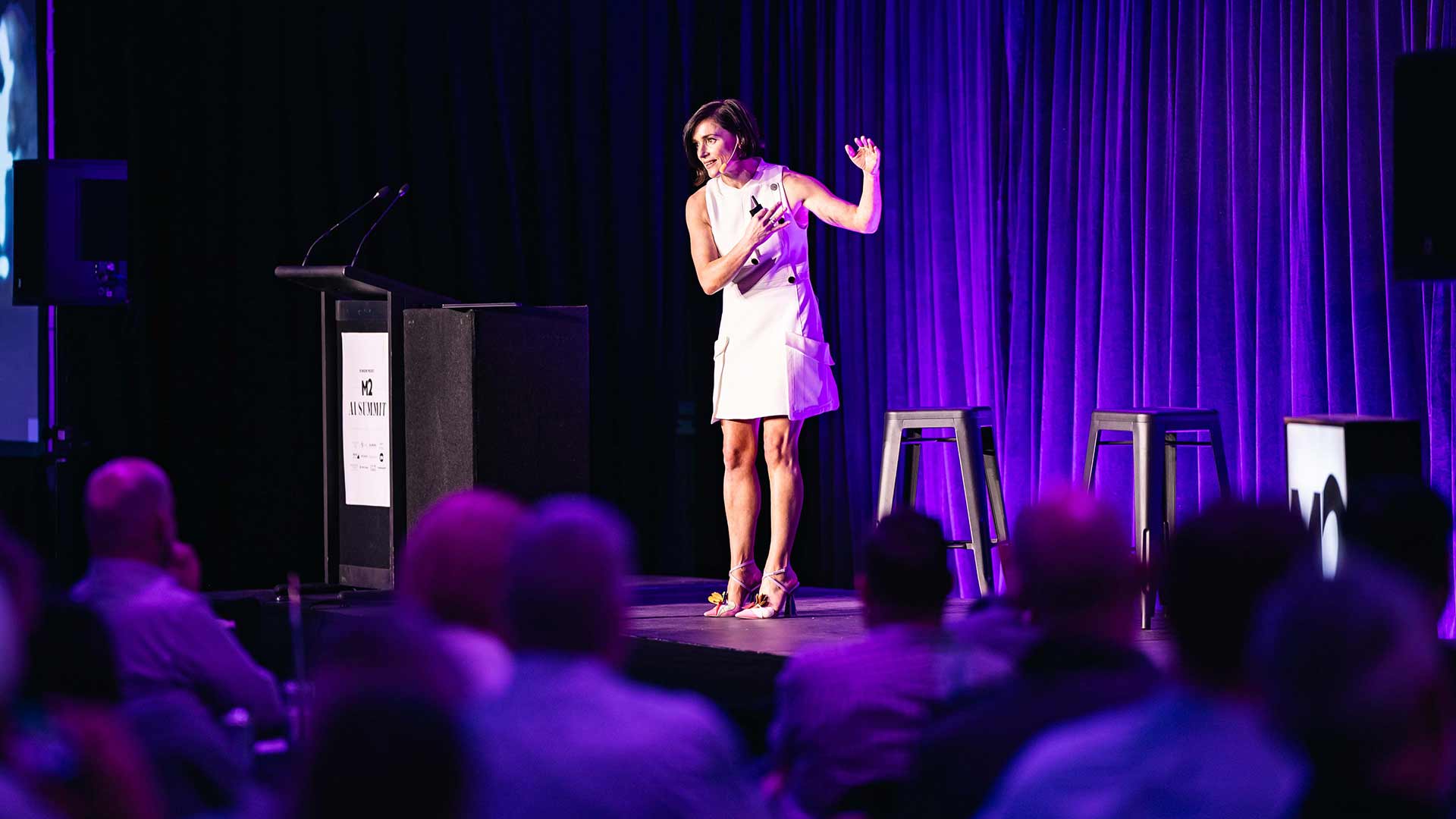The Human Factor In The Age Of AI
Dr. Alia Bojilova, a renowned performance coach for SAS soldiers and Olympic athletes, shared her unique perspective on the essential interplay between AI and human elements. Her experience includes a harrowing episode as a UN negotiator in Syria, where she successfully negotiated her team’s release after being taken hostage.
Bojilova’s keynote was not just about AI’s potential; it was a global journey through the varying perceptions and realities of AI. She recounted her recent travels, noting, “In San Francisco, I was there to help an already thriving venture firm become a championship team. As we bounced around Palo Alto, about 12 heartbeats away from Facebook’s founder’s house, I was asking them some questions around how do we feel about this AI business? What will become of us?” The optimism in Silicon Valley was palpable, with leaders espousing the virtues of AI, from enhanced creativity and curiosity to unprecedented freedoms. “Think about the amazing human creativity, curiosity, the human potential that is going to be unleashed,” she quoted them, capturing the excitement of the tech capital.
In stark contrast, her engagements in Asia revealed a different narrative. Here, concerns about AI’s implications were more pronounced. “Dehumanisation, the risk of empathy rapidly decreasing, compassion being lost, intensified workload way past the point of flexibility,” Bojilova listed, describing the apprehensions she encountered. These concerns were not unfounded; statistics showed that 46% reported having existential anxiety about AI’s future impact.
The crux of Bojilova’s message was clear: amidst the rush towards technological advancement, we must not lose sight of the human element. “The tiny space between the thinker and the thought,” she described, emphasising the importance of maintaining a balance. She spoke of Viktor Frankl’s ideas on the human search for meaning, drawing parallels between his philosophy and the current technological landscape.
Bojilova outlined a framework for building adaptable and innovative cultures, centred on four pillars: awareness, belonging, curiosity, and drive. “Mind where your mind goes,” she advised, highlighting the necessity of self-awareness and situational awareness in navigating the complexities of AI integration. Belonging, she argued, is fundamental, likening it to gravity for a cosmonaut: “Without it, we drift aimlessly and off-course.”
Curiosity, a trait Bojilova holds in high regard, was another focal point. “The reason why we talked our way out of our hostage situation allegedly was curiosity,” she recounted, sharing how incessant questioning during her hostage ordeal led to their release. “You cannot be freaking out and be curious at the same time,” she asserted, underscoring the role of curiosity in fostering resilience and innovation.
The final pillar, drive, is inextricably linked to a sense of purpose. “Purpose precedes drive,” Bojilova stated, stressing that a clear sense of purpose is crucial in guiding teams through ambiguity and change. She cautioned against pursuing goals that do not align with one’s core values and beliefs, drawing on her military experience to illustrate the importance of maintaining equilibrium.
When asked about the importance of uncomfortable conversations in organisations, she responded, “The very essence of the anxiety was, will we drive AI or will it be something that chases us out of the picture?” This highlighted the existential dilemma faced by many businesses today. Her optimism for the future was tempered with a call for strategic attention and engagement. “Hugely, hugely optimistic. And it’s not because I think we have to be; it’s because we have every reason to be,” she affirmed, yet she emphasised the need for selective attention and purposeful engagement.


